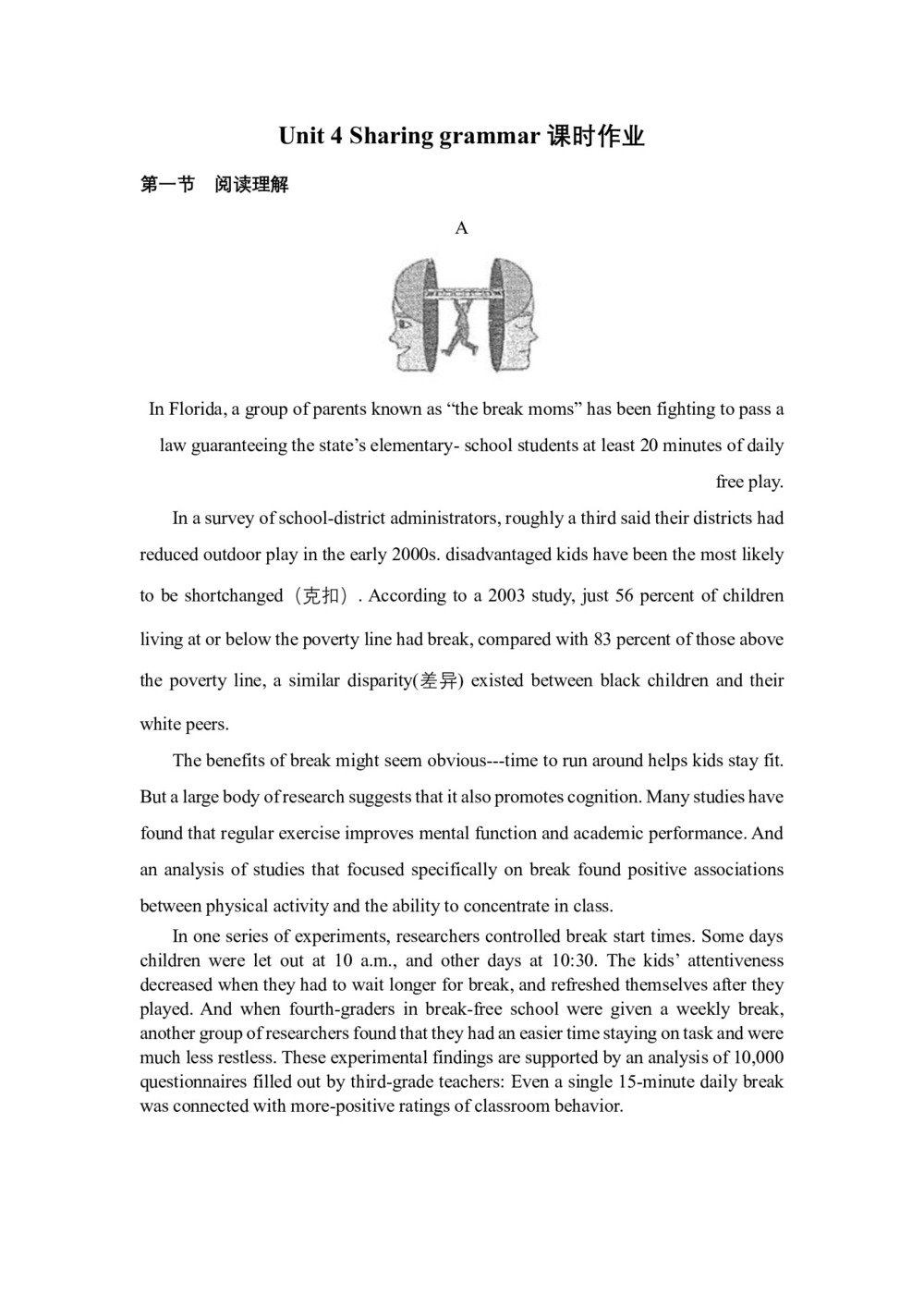
Unit 4 Sharing grammar课时作业
第一节 阅读理解
In Florida, a group of parents known as "the break moms" has been fighting to pass a law guaranteeing the state's elementary- school students at least 20 minutes of daily free play.
In a survey of school-district administrators, roughly a third said their districts had reduced outdoor play in the early 2000s. disadvantaged kids have been the most likely to be shortchanged(克扣). According to a 2003 study, just 56 percent of children living at or below the poverty line had break, compared with 83 percent of those above the poverty line, a similar disparity(差异) existed between black children and their white peers.
The benefits of break might seem obvious---time to run around helps kids stay fit. But a large body of research suggests that it also promotes cognition. Many studies have found that regular exercise improves mental function and academic performance. And an analysis of studies that focused specifically on break found positive associations between physical activity and the ability to concentrate in class.
In one series of experiments, researchers controlled break start times. Some days children were let out at 10 a.m., and other days at 10:30. The kids' attentiveness decreased when they had to wait longer for break, and refreshed themselves after they played. And when fourth-graders in break-free school were given a weekly break, another group of researchers found that they had an easier time staying on task and were much less restless. These experimental findings are supported by an analysis of 10,000 questionnaires filled out by third-grade teachers: Even a single 15-minute daily break was connected with more-positive ratings of classroom behavior.
-
相关试卷下载
- 12018--2019学年人教版选修七Unit 4 Sharing grammar课时作业(4)
- 22018--2019学年人教版选修七Unit 4 Sharing grammar课时作业(2)
- 32018--2019学年人教版选修七Unit 4 Sharing grammar课时作业(3)
- 42018--2019学年人教版选修七Unit 4 Sharing grammar课时作业(10)
- 52018--2019学年人教版选修七Unit 4 Sharing grammar课时作业(8)
- 62018--2019学年人教版选修七Unit 4 Sharing grammar课时作业(5)
- 72018--2019学年人教版选修七Unit 4 Sharing grammar课时作业(1)
- 82018--2019学年人教版选修七Unit 4 Sharing grammar课时作业(6)
- 92018--2019学年人教版选修七Unit 4 Sharing grammar课时作业(7)